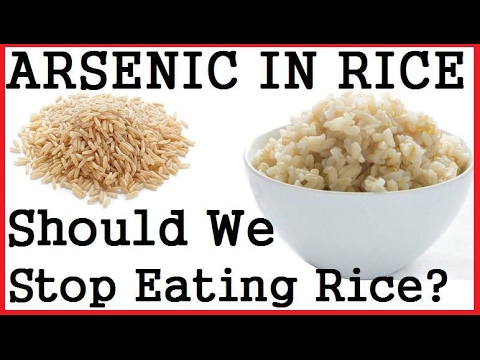ARSENIC IN MALE INFERTILITY
INTRODUCTION TO INFERTILITY
According to World Health Organization, infertility is defined as the inability to achieve a clinical pregnancy after 12 months or more of unprotected sexual intercourse.
A lot of elements play role in infertility, some to aid it while some to inhibit it.
The absence of some elements reduces the chance of fertility, these elements are needed at optimal quantity to aid fertility…
In the same way, the presence of some elements increases the chance of infertility.
One by one, we will discuss all these things and how our diets affect our fertility.
Today, I will be discussing the role of arsenic in male infertility.
COMMON MODES OF CONTACT WITH ARSENIC
Contact with arsenic includes but not limited to these:
• Water
• Food
• Herbicides and pesticides
• Tobacco
The most common route of contact with arsenic is through the contaminated groundwater.
WATER
Inorganic arsenic is naturally present at high levels in the groundwater of a number of countries, including Argentina, Chile, China, India, Mexico, and the United States of America. Drinking-water, crops irrigated with contaminated water and food prepared with contaminated water are the sources of exposure.
In a nutshell, underground water are common sources of arsenic
FOOD
Aquatic organisms from contaminated water are sources of arsenic, arsenic usually found in seafood are present in their less toxic organic forms.
Some foods absorb arsenic from soil, rice seems to be the most commonly eaten foods in this category.
Cooking your rice with much water can help reduce the arsenic present… also parboiling the rice can also help, I won’t go much into this, I will explain this in my next post.
 source
source
Other common sources of arsenic are pesticides and it’s also present in tobacco.
ARSENIC AND REACTIVE OXYGEN SPECIES
Arsenic can lead to lipid peroxidation, this challenges the integrity of the cell membrane. Lipid peroxidation leads to the generation of reactive oxygen species and vice-versa. This means that the lipid peroxidation will lead to the generation of reactive oxygen species(ROS). The ROS leads to further lipid peroxidation leading to a positive feedback mechanism and a dangerous cycle.
The causes premature acrosome reaction i.e there will be a release of the content of the spermatozoa before coming in contact with an egg meaning that the sperm will lose its viability.
Arsenic is a group V element making it have the ability to replace phosphorus in reactions. Arsenic replaces phosphorus leading to a decline in NADPH production.
 source
source
HOW DANGEROUS IS THIS?
The body has its antioxidants whose function is to reduce reactive oxygen species. These antioxidants include catalase and superoxide dismutase and they are dependent n NADPH for their activity. Since arsenic inhibits the production of NADPH, it reduces the activity of these enzymes, therefore, they can’t reduce the ROS produced.
Remember that I wrote that arsenic causes generation of high level of ROS and now it’s inhibiting the enzymes to mop up ROS. this implies that arsenic can cause the generation of a very high level of ROS.
ARSENIC AND ENERGY GENERATION
Arsenic displaces phosphorus in the presence of high level of arsenic. This displacement causes the formation of ADP-arsenate instead of ATP. Depleting the energy level of the cell and reducing the motility of the spermatozoa.
In glycolysis, it can react with glucose to form glucose-6-arsenate, it can also cause the formation of 1-arsenic-3-phosphoglycerate. It can inhibit pyruvate dehydrogenase and succinic dehydrogenase. All these is to deplete the energy level of the cell.
ARSENIC IN MUTATION
Arsenic can inhibit DNA ligase 1 and DNA ligase 3, this can lead to nick in DNA. The nick can be a sensor for DNA repair which consumes energy and it also predisposes the DNA to mutation.
Arsenic can also cause the hypomethylation of DNA. The hypomethylation of DNA predisposes the DNA to mutation.
Having discussed all these, I will make these recommendations
RECOMMENDATIONS
• Use of nose covers while using insecticides and pesticides
• Reduction in tobacco intake
• River water is not advisable for drinking
My next discussion will be on how to reduce arsenic in rice…
OUR HEALTH….OUR LIFE.